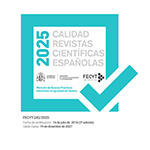Demographic change and implications for workforce ageing in Europe - raising awareness and improving practice
Resumen
Despite differences between EU member countries, most experience demographic change characterised by a decrease in mortality and fertility rates leading to a growing proportion of older people with effects on the working population. This poses a range of economic challenges in terms of financing health care and retirement as well as maintaining the employment skills base. This paper is based on a research project with the aim of identifying what policies employers and employment related organisations need to adopt in order to extend the labour market participation of older workers. Between 2005 and 2007 the ESF Article 6 funded CAWA (Creative Approaches to Workforce Ageing). This project was carried out by four European partner institutions based in: Spain, Austria, Sweden and the UK with further input from Bulgaria. The project partners had strong links to trade unions, employers organisations and regional authorities, facilitating multilayred debates related to raising awareness of demographic change among policy makers and developing best practice guidelines. The findings presented relate to key employment areas and are explored from employers’ and workers’ perspectives. The organisational identities/commitment literature provides a conceptual framework to gain understanding of the push and pull factors associated with workforce ageing. The paper concludes by arguing that the debate on workforce ageing among trade unions, employers and policy makers needs to be focussed on deeper understanding of the work and non-work related identities of older workers and aim to facilitate flexible working arrangements.Descargas
##plugins.generic.pfl.publicationFactsTitle##
##plugins.generic.pfl.reviewerProfiles## N/D
##plugins.generic.pfl.authorStatements##
Indexado: {$indexList}
-
##plugins.generic.pfl.indexedList##
- ##plugins.generic.pfl.academicSociety##
- N/D
- Editora:
- Ediciones Complutense
Descarga artículo
Licencia
La revista Cuadernos de Relaciones Laborales, para fomentar el intercambio global del conocimiento, facilita el acceso sin restricciones a sus contenidos desde el momento de su publicación en la presente edición electrónica, y por eso es una revista de acceso abierto. Los originales publicados en esta revista son propiedad de la Universidad Complutense de Madrid y es obligatorio citar su procedencia en cualquier reproducción total o parcial. Todos los contenidos se distribuyen bajo una licencia de uso y distribución Creative Commons Reconocimiento 4.0 (CC BY 4.0). Esta circunstancia ha de hacerse constar expresamente de esta forma cuando sea necesario. Puede consultar la versión informativa y el texto legal de la licencia.











